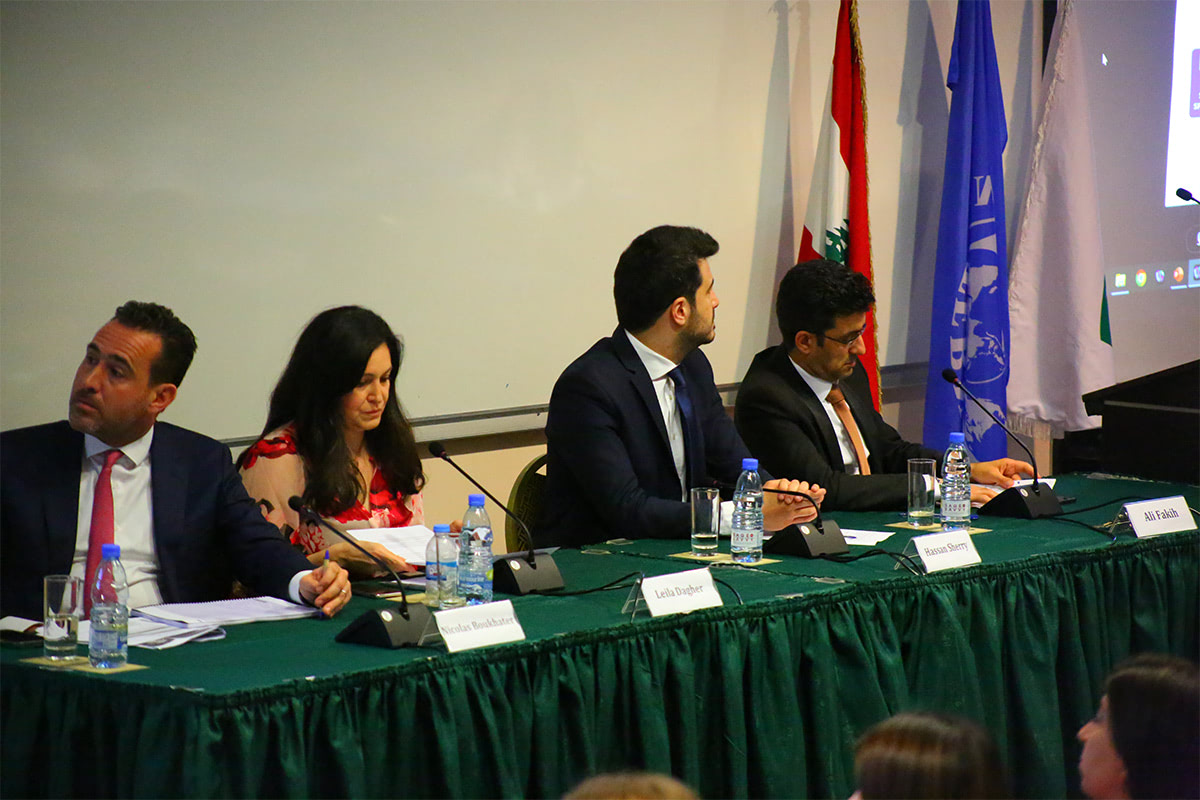The Role of Social Spending and Financial Inclusion in Fostering Inclusive Economic Growth in the MENA Region
A seminar held by AKSOB’s Department of Economics and the International Monetary Fund invited experts to analyze economic challenges in the MENA region and advocate for inclusive growth.
Numerous challenges have impeded achieving the eighth Sustainable Development Goal (SDG) on decent work and economic growth.
The impact of the COVID-19 pandemic on the cost of living, monetary policies and mounting debts in developing nations has proven to be a setback to the growth of the economy globally.
To that end, in a seminar titled Promoting Inclusive Growth in the MENA Region: The Role of Social Spending and Financial Inclusion, the Department of Economics at the Adnan Kassar School of Business, in collaboration with the International Monetary Fund (IMF) assembled experts and economists to examine the economic trials facing the Middle East and North Africa (MENA) region.
Chair of the Department of Economics at LAU, Associate Professor of Economics Ali Fakih was joined by Associate Professor of Economics at AUB Leila Dagher and President of the Lebanese Business Leaders Association Nicolas Boukather in the seminar moderated by Assistant Professor of Economics at LAU Hassan Sherry.
The department invited IMF’s Senior Economist Adolfo Barajas, Deputy Division Chief Anastasia Guscina and Mauritania Representative Anta Ndoye to discuss its approach in the MENA region, underscoring the urgency to yield high returns to growth by classifying social spending.
Together, the scholars and IMF representatives explored strategies to foster sustainable and inclusive economic growth through the lens of a recent IMF book on inclusive growth, highlighting the relationship between social spending, financial inclusion and inclusive growth in the region.
During the seminar, Dr. Fakih expounded on the critical role of the aforementioned aspects in empowering individuals and marginalized groups, reducing inequality – mainly in rural areas – and driving sustainable development.
As the participants engaged in discussion, they drew attention to how the “book was part of a series of events leading up to the annual IMF and World Bank meetings in Morocco,” said Frederico Lima, IMF resident representative for Lebanon. “The main focus of these meetings and events is about inclusive growth and how to generate that in the MENA region, especially in Lebanon, as it faces dire social, political and financial challenges.”
Dr. Sherry noted that recent global events, such as the 2008 financial crisis and the COVID-19 pandemic, had prompted the IMF to reconsider its approach to economic policies. “This book perhaps indicates some type of departure from traditional practices,” he said, emphasizing the importance of social protection systems, financial inclusion and addressing climate change.
The IMF team shared insights into the indispensable role of social spending and financial inclusion in economic development.
“Social spending can be thought of as a key policy that the governments must address in promoting economic equities and inclusive growth through prioritizing spending with the highest returns to growth,” said Dr. Guscina. Hence, IMF programs can stipulate a minimum floor of social spending for each country to ensure that the adjustment is socially sustainable and inclusive growth is protected.
Regarding financial inclusion, noted Dr. Barajas, decades of empirical analysis have shown that greater access to types of financial services has a measurable impact at the micro level on households and firms.
With a Q&A drawing the seminar to a close, Dr. Fakih and Dr. Dagher addressed the IMF’s role in creating fiscal space for social spending and improving access to finance for small legal enterprises in the MENA region.
“Financial inclusion over the last two or three years has decreased substantially, so much so that we are facing difficulty funding essential goods for services such as education,” said Dr. Fakih. “It is significant to reform the current social spending in order to come up with different strategies to fund essential services.”
The drawback in establishing a sustainable and inclusive social protection program in Lebanon, noted Dr. Dagher, is the lack of a comprehensive digital social registry and integrated database to ensure inclusivity.
“A large-scale digital social registry, a comprehensive, integrated registry that includes both Lebanese and non-Lebanese formal and informal sectors is a prerequisite for an inclusive social protection scheme,” she said.
For Dr. Boukather, the need for effective leadership and communication to regain trust in Lebanon’s economic ecosystem makes the IMF report and its potential to restore confidence from international partners all the more urgent.
Invitations to apply to the 2023 IMF Youth Fellowship Program were extended to participants so that they would get further opportunities to engage in akin discussions and workshops, as well as attend the World Bank and IMF annual meetings in Marrakesh taking place in October.
Reporting by Economics Student Dana Ghoussaini.
